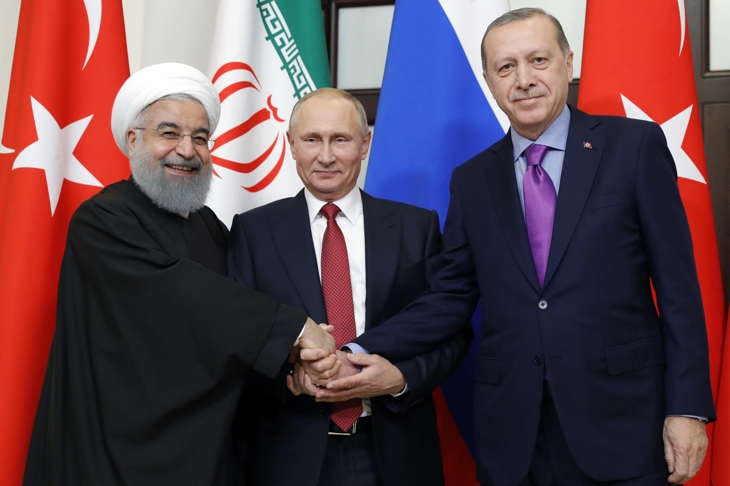Turkey’s decision to send troops into Syria to fight the Kurdish People’s Protection Units (YPG) shouldn’t come as a shock to anyone who has seen how the country is changing over the past few months. Turkey has become increasingly determined to forge its own way in the world, ignoring the entreaties of western countries, and indeed blaming the West for many of its troubles. The Erdogan government says the YPG is a terrorist organisation that, along with the PKK, is determined to do Turkey harm.
When I visited Istanbul, Gaziantep and Izmir in December, the most striking thing about my meetings with political figures and members of civil society was how furious they were that western countries didn’t acknowledge this, and that the United States had in fact been supporting the YPG. It was often difficult to get a word in edgeways once someone had dropped the letters PKK into conversation. There was always an undertone of deep hurt that no-one else seemed to understand how threatened Turkey feels.
The country feels very paranoid generally about threats. The July 2016 coup still excites raw emotions in people, not least because the Turkish parliament in Ankara was bombed. Given the effects of the 2017 terror Westminster terror attack on the SW1 community, the impact of a physical bomb in the building is something that British politicos can understand a little better than most. But what it is then difficult to sympathise with is the way the coup has been used as an excuse to purge members of the judiciary, the legal and education professions, and civil society. The Turks argue that the level of Gülenist infiltration was bad enough to justify this, and that while people complain about Erdogan’s state of emergency, no-one acknowledges that France was under a state of emergency for nearly two years following the November 2015 Paris attacks. But it is difficult to look at the scale of sackings and imprisonments in the country without concluding that the emotional impact and paranoia following the coup is also a convenient opportunity to crack down on those who are merely awkward for the government, rather than terrorists infiltrating society.
It is also difficult not to look at the behaviour of the Turkish government and think that it echoes that of one of its allies, Russia, in crushing dissent. And this is the tricky question for Britain. Turkey is famous for being a country that has had to face both ways, into Europe and into Asia. Now that it is growing in confidence, it doesn’t want to be a country that looks into Europe and finds that it is only scolded for trying to protect itself. This makes turning to Russia more tempting, which is hardly something the West would want to encourage.
Turkey is a member of Nato, yet there is such bitterness in the political classes about the organisation that it is considered perfectly reasonable that the Erdogan government would buy missiles from Russia while staying a member of Nato. If the West pushes too hard with explicit condemnations and a sense that it doesn’t understand why Turks feel threatened, then the bitterness will harden. Turkey may choose to turn away still further, which is not in the interests of those who want to prevent Russia from becoming more overbearing, particularly when defence chiefs are today warning that they simply cannot keep up with the Russian threat under their current funding levels.
Yet the scale of human rights violations in the country make it difficult for Nato allies to pretend that everything is going just fine. There is also increasing pressure on the British government to condemn in public not just the ongoing crackdown by Erdogan against the Gülenists, but also the latest move into Syria against the Kurdish fighters. British diplomacy tends to resist such public displays, knowing that it satisfies the news agenda far more than it helps the situation in question. It is also not easy to respond to a fight between two of your allies in the war against Islamic State.
This is why we may hear rather cautious comments from the British government following the latest move against the YPG. It may cause a political row in Britain, with some politicians calling for more explicit condemnations, but it is not so much because the government doesn’t care what Turkey is up to than it is that Britain is worried that pushing the matter for political gain here may lead Turkey to turn its face away still further.







Comments